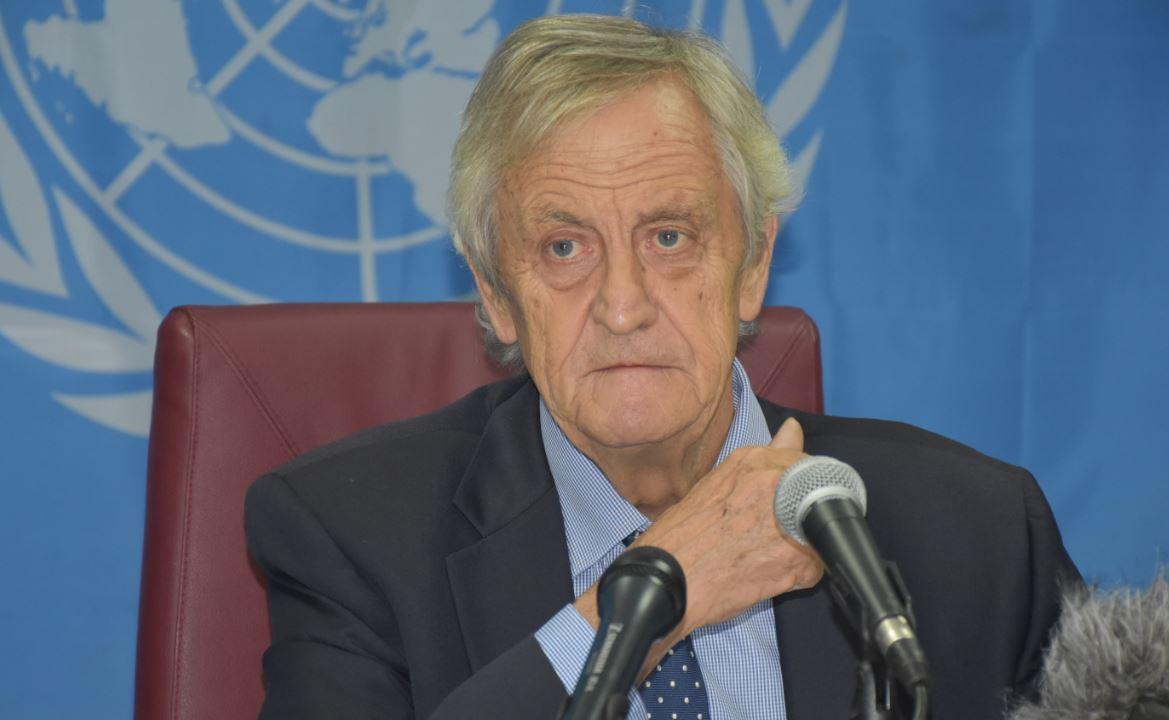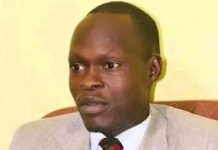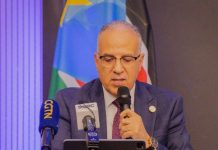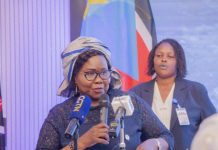Africa-Press – South-Sudan. The head of the United Nations Mission in South Sudan (UNMISS) has decried the resurgence of violent conflicts in the country.
Nicholas Haysom, who is the Special Representative of the Secretary-General of the United Nations Mission in South Sudan, told the media on Thursday that he was discouraged by the resurgence of subnational violence, which was mostly propagated by armed youth.
Haysom’s statement comes after recent clashes in Leer County, Unity State, led to the displacement of thousands of people and a number of deaths. Clashes have been reported between the Sudan People’s Liberation Army in Opposition (SPLA-IO) and the South Sudan People’s Defence forces (SSPDF). However, the latter has denied that the fight is between the SPLA-IO and the Kit-Gwang faction led by its former official, Gen Simon Gatwech.
“I was saddened to learn that only last week thousands of people in Leer, Unity State were forced to flee their homes following a surge of fighting, along with disturbing reports of sexual violence, looting, and destruction of civilian and humanitarian property,’’ Haysom lamented.
Civilians, among them women and children, across the country continue to bear the brunt of the bloodshed. Most victims are said to have taken refuge in wetlands, while others have been killed and their bodies, as well as their homes, burned.
Haysom denounced the attacks on the people and stated that UNMISS would work with the government’s senior leadership to intervene in the protection of the people as well as provide humanitarian aid.
“I strongly condemn these violent attacks on civilians but in particular attacks on humanitarians and the looting of life-saving supplies and assets, all of which is unacceptable. Already this year, “humanitarians have lost their lives,” the UNMISS boss stated.
Army formation step
However, he lauded the government for its recent efforts in forming the command structure of the country’s various security sectors, including the launch of a public consultation on truth, reconciliation, and healing as part of the revitalised peace agreement’s chapter five implementation.
Multiple shocks, such as flooding and the prolonged economic repercussions of COVID-19, are projected to occur against the backdrop of inter-communal violence and the country’s humanitarian crisis, which worsened in 2021, according to Haysom.
For humanitarians, he noted, saving lives should not mean losing lives. He said, “With the appointment of a single unified command, we expect to see greater coherence in the government response to local conflicts across the country.”
With only 10 months left in the transition period, UNMISS chief also urged parties to refocus on completing the remaining chapters of the peace agreement and agreeing on a date for elections.
According to Haysom, now that the unified command structure has been agreed upon, the way is clear for a surge in other critical tasks such as transitional justice, financial, legal, and judicial reforms, and the constitution-making process, which is critical to establishing the social contract that will underpin national unity.
He said UNMISS would provide technical support and work with local organisations to encourage an understanding of the constitution-making process and to ensure that the process is inclusive.
When asked how the government can best address the country’s subnational violence, Haysom said that in order to break the cycle, leaders at all three levels must engage if they want to create the conditions for peace, particularly in the cycles of violence in which an incident leads to a revenge attack, which leads to a counter-revenge attack.
“We believe quite strongly that Juba-based politicians need also to engage, but it also needs the state level, the Governors, the Commissioners, and traditional leaders to bring communities and sometimes youth groups to the table to discuss the arrangements by which they can live together harmoniously,” Haysom advised.
According to him, subnational violence has an impact on the country. He asserted that “it does a lot, especially now that we are seeing warfare from Aweil to Torit, Tombura to Jonglei, Upper Nile and Unity.”
He added: ‘‘ We have also been talking to the country’s leaders, telling them that it’s vital that they intervene and show leadership in dealing with the violence.’’
Before the Leer incident, cattle herders from Bor launched offensive raids against communities in Magwi County and parts of Torit West County, Juba County, displacing thousands of people, burning their homes, and killing others.
For More News And Analysis About South-Sudan Follow Africa-Press






